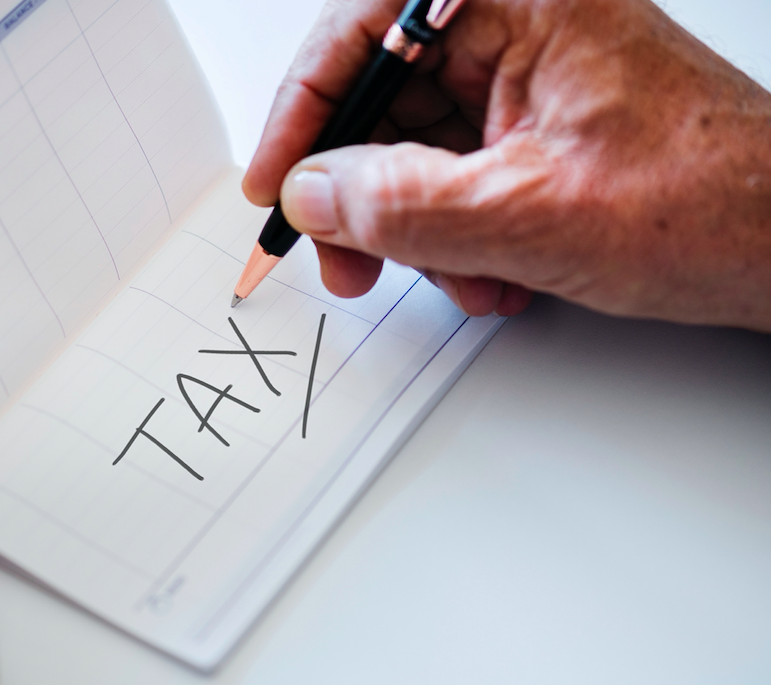In June 2018, the U.S. Supreme Court handed down a decision in South Dakota v. Wayfair that changed the way remote sellers (like internet companies) do business in states where they don’t have a physical presence, like a brick and mortar store or a headquarters. Essentially it means these companies will start collecting sales tax in certain states with economic nexus laws already on the books to enforce collection against said remote retailers. Iowa is one such state.
What does this mean for you and your nonprofit? Most nonprofits may start seeing sales tax tacked on to certain receipts for digital accounts/services. (The rate of sales tax is based on your Iowa primary contact address.) But, some nonprofits are exempt from sales tax and therefore will need to remit an exemption certificate to the remote seller.

Taxes and Nonprofits
The interplay between taxes and nonprofits can be confusing. Even if a nonprofit is exempt from state and federal income taxes, it does not mean that entity is auto exempt from paying sales tax for goods and (taxable) services. Generally, sales taxes must be paid unless the nonprofit falls under the umbrella of some other applicable general sales tax exemption. (Local option sales taxes must also be paid on purchases made in existing areas.)
However, the Iowa Code does exempt certain nonprofits from paying sales tax on purchases. The Iowa Department of Revenue’s guide to “Iowa Tax Issues for Nonprofits” provides a (non-exclusive) list of entities that are specifically exempt from sales/use taxes under Iowa law. I’ve included the pretty lengthy list here for your convenience!
- American Red Cross
- Navy Relief Society
- U.S.O. (United Service Organizations)
- Community health centers (as defined in 42 U.S.C.A. subsection 254c)
- Migrant health centers (as defined in 42 U.S.C.A. subsection 254b)
- Residential care facilities and intermediate care facilities for the intellectually disabled and residential care facilities for the mentally ill (licensed by the Department of Inspections and Appeals under Iowa Code chapter 135C)
- Residential facilities for intellectually disabled children (licensed by the Department of Human Services under Iowa Code chapter 237)
- Residential facilities for child foster care [licensed by the Department of Human Services under Iowa Code chapter 237, except those maintained by “individuals” as defined in Iowa Code subsection 237.1(7)]
- Rehabilitation facilities which provide accredited rehabilitation services to persons with disabilities and which are accredited by the Commission on Accreditation of Rehabilitation Facilities or the Accreditation Council for Services for intellectually disabled and other developmentally disabled persons and adult day care services approved for reimbursement by the Iowa Department of Human Services
- Community mental health centers (accredited by the Department of Human Services under Iowa Code chapter 225C)
- Home and community-based services providers certified to offer Medicaid waiver services by the Department of Human Services that are any of the following:
-
- Health and disability waiver service providers, described in 441 IAC 77.30.
- Hospice providers, described in 441 IAC 77.32.
- Elderly waiver service providers, described in 441 IAC 77.33.
- AIDS/HIV waiver service providers, described in 441 IAC 77.34.
- Federally qualified health centers, described in 441 IAC 77.35.
- Intellectual disabilities waiver service providers, described in 441 IAC 77.37.
- Brain injury waiver service providers, described in 441 IAC 77.39.
-
- Sales of tangible personal property and services made to nonprofit hospitals and nonprofit hospices (licensed under Iowa Code chapter 135B)
- Statewide nonprofit organ procurement organizations
- Nonprofit legal aid organizations
- Nonprofit organizations organized solely for the purpose of lending property to the general public for nonprofit purposes
- Nonprofit private museums*
- Governmental units, subdivisions, or instrumentalities of the federal government or of the state of Iowa (This includes state, county, and local subdivisions of the government of the State of Iowa and those of any other state which provide a similar sales tax exemption to Iowa and its political subdivisions.) *
- Recreational lake and water quality districts*
- Federal corporations created by the federal government which are exempt under federal law *
- Private nonprofit educational institutions located in Iowa *
- Private nonprofit art centers located in Iowa
- Habitat for Humanity in Iowa when purchasing building materials *
- Toys for Tots when purchasing toys
- Community action agencies as defined in Iowa Code section 216A.93
- Substance abuse treatment or prevention facilities that receive block grant funding from the Iowa Department of Public Health
Sales Tax Exemption in Action
So, let’s say you’re an Iowa private nonprofit grade school that subscribes to an online newsletter service (which is based in California) so that administrators can design, write, and send a weekly email update to parents of students. Your organization would likely be exempt from the new sales tax charges imposed by the remote seller on your subscription rate.
Down to the Details
Exempt nonprofits must pay for their purchases from the entity’s account and should complete and submit an Iowa Sales Tax Exemption Certificate 31-014 to the remote seller.
Questions? Not sure if your nonprofit qualifies for this exemption? Don’t hesitate to contact me at any time to speak about your situation.

